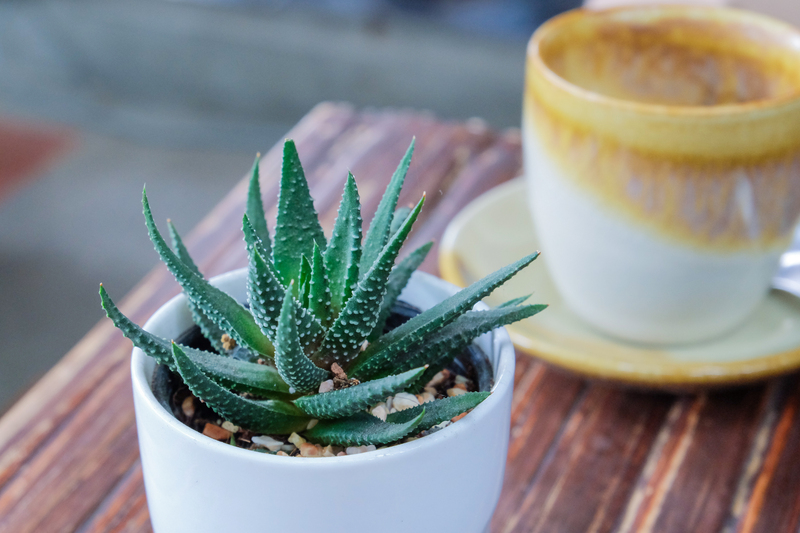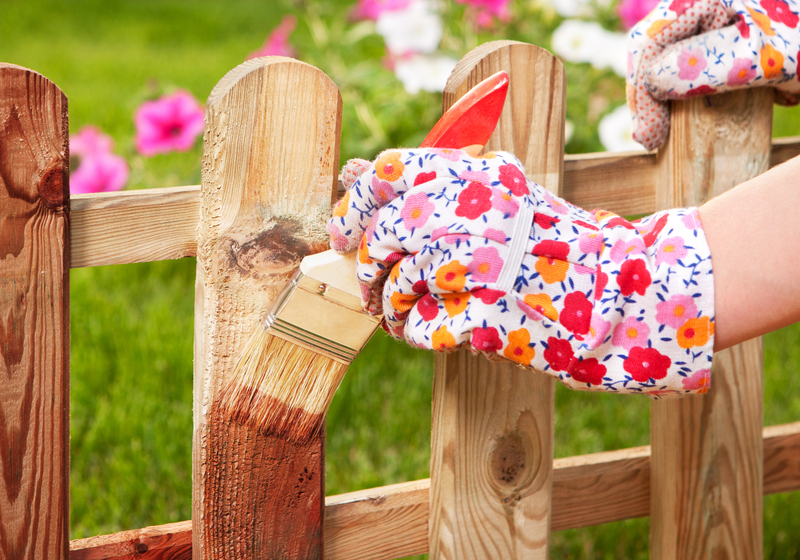Beginner's Guide to Herb Gardens
Posted on 15/09/2025
Beginner's Guide to Herb Gardens: Grow Your Own Herbs at Home
If you've ever dreamed of plucking fresh basil for your pasta or sprinkling homegrown rosemary over grilled vegetables, learning how to grow an herb garden is a rewarding and accessible project for anyone. This comprehensive beginner's guide to herb gardens will teach you everything you need to know, from selecting the best herbs for beginners to maintaining your vibrant kitchen garden. Whether you have a sunny windowsill or a small backyard, you can start cultivating delicious and aromatic herbs today!

Why Start an Herb Garden?
Herb gardens are one of the easiest and most satisfying ways to begin gardening. Here are some compelling reasons to grow your own herbs:
- Fresh Flavors: Homegrown herbs are fresher and more flavorful than store-bought ones.
- Cost-Effective: A small investment in seeds or starter plants yields months of harvests.
- Health Benefits: Herbs are packed with antioxidants, vitamins, and minerals.
- Attractive Spaces: Herb gardens add beauty and a pleasant aroma to any space.
- Pesticide-Free: You control how your herbs are grown, eliminating unnecessary chemicals.
Choosing the Right Location for Your Herb Garden
The success of your herb garden begins with selecting the perfect spot. Most herbs thrive in certain conditions. Here are the key factors:
Light Requirements
Most popular culinary herbs need at least 6-8 hours of direct sunlight daily. South-facing windowsills, patios, and balconies are ideal for indoor herb gardens. If you're gardening outdoors, select a location that receives abundant sun.
Soil and Drainage
Herbs prefer well-drained, fertile soil. Sandy or loamy soils work best. To improve drainage and nutrient content, mix organic compost or potting soil into the gardening bed or containers.
Space Considerations
- Container Herb Gardens: Suitable for indoor spaces or patios.
- Raised Beds: Offer excellent drainage and are easy to manage.
- Traditional Gardens: Directly plant herbs in garden beds for large harvests.
Choose a method that matches your available space and convenience.
The Best Herbs for Beginners
For those new to gardening, choosing easy-to-grow herbs is essential. Here are some of the top choices for starting an herb garden:
- Basil: A favorite for Italian dishes, pesto, and salads. Needs warm weather and frequent harvesting.
- Mint: Hardy and fast-growing. Best grown in pots to prevent spreading.
- Parsley: Biennial herb that adds freshness to many dishes. Prefers cooler temperatures.
- Thyme: Drought-tolerant and fragrant.
- Chives: Perennial with mild onion flavor. Great for salads and garnish.
- Cilantro (Coriander): Common in Latin American and Asian cuisines. Grows quickly, but bolts in heat.
- Rosemary: Aromatic woody herb; thrives in containers and dry conditions.
- Sage: Sturdy and flavorful. Use in meats and stuffing.
- Dill: Perfect for pickles, fish, and salads.
- Oregano: Hardy perennial used in Mediterranean cooking.
Planning Your Herb Garden Layout
Proper planning ensures that your herb patch is visually appealing and easy to maintain. Here are some tips for an efficient layout:
Grouping by Water Needs
Certain herbs, like basil and parsley, require more frequent watering. Others, like rosemary and thyme, prefer drier soil. Group herbs with similar water requirements together for easier care.
Companion Planting
Some herbs benefit each other when planted side by side. For example, chives and parsley grow well together, while mint is best kept separate due to its vigorous growth.
Accessibility
Place frequently used herbs near your kitchen for quick access. Consider container herb gardens on your windowsill or patio for the freshest flavors at your fingertips.
How to Start Your Herb Garden
From Seeds or Seedlings?
Herb gardens can be started from seeds, starter plants, or cuttings. Here's a breakdown:
- Seeds: Cheaper, wide variety, but require patience and care during germination.
- Seedlings: Faster results and less waiting. Ideal for beginners.
- Cuttings: Take a cutting from existing herbs and root it in water or soil.
Beginners often succeed with seedlings or cuttings, as these methods are more forgiving and offer a quicker harvest.
Steps to Plant an Indoor Herb Garden
- Choose Containers: Select pots with drainage holes. 4-6 inches deep works for most herbs.
- Fill with Quality Potting Mix: Use organic, well-draining soil.
- Transplant or Sow Seeds: Follow spacing instructions on seed packets or plant labels.
- Water Carefully: Keep soil moist, not soggy. Water when the top inch feels dry.
- Place in Light: Position containers on a sunny windowsill or under grow lights.
- Feed Lightly: Fertilize with a mild organic liquid fertilizer every few weeks.
Steps to Start an Outdoor Herb Garden
- Prepare the Soil: Loosen garden bed soil and work in compost for nutrients.
- Sow Seeds or Plant Seedlings: Follow recommended spacing and depth.
- Label Herbs: Use markers to avoid confusion as the herbs grow.
- Mulch: Add a layer of mulch around herbs to conserve moisture and suppress weeds.
- Water Wisely: Ensure young herbs stay moist but not waterlogged.
Caring for Your Herb Garden
Herb garden care is relatively simple. Here are essential tips to help your garden thrive:
Watering
- Most herbs prefer to dry out slightly between waterings.
- Avoid overwatering, which can cause root rot.
- Check soil moisture by feeling the top inch with your finger.
Pruning and Harvesting
- Pinch back the growing tips regularly to encourage bushy growth.
- Harvest leaves before herbs flower for best flavor.
- Never remove more than one-third of the plant at a time.
Fertilizing
- Use an organic, all-purpose fertilizer sparingly in the growing season.
- Too much fertilizer can reduce flavor and aroma.
Pest and Disease Management
- Inspect herbs regularly for insects or fungal issues.
- Most pests can be controlled by hand-picking, neem oil, or insecticidal soap.
- Keep your garden clean and avoid overcrowding.
Popular Indoor Herb Garden Ideas
- Windowsill Herb Planters: Use long containers to plant several herbs together.
- Mason Jar Gardens: Herbs can thrive in jars with a drainage layer at the bottom.
- Vertical Herb Walls: Hang small pots or wall-mounted planters in kitchen spaces.
- Hanging Baskets: Great for trailing herbs like thyme or oregano.
These creative ideas allow anyone to have a thriving herb garden, even in the smallest apartments.
Harvesting and Storing Your Herbs
Proper harvesting keeps your herb patch healthy and productive. Here's how:
How to Harvest Herbs
- Pick herbs in the morning after dew dries for maximum flavor.
- Use clean scissors or pinch leaves just above a set of healthy leaves.
- Frequent harvesting encourages new growth.
Drying and Freezing Herbs
If you have a surplus, dry or freeze your herbs for future use:
- Drying: Bundle stems and hang in a dark, dry, well-ventilated place.
- Freezing: Chop herbs and pack them into ice cube trays with water or olive oil. Freeze for easy use in soups and stews.
Storing Fresh Herbs
- Store fresh, unwashed herbs in a glass of water in the fridge.
- Alternatively, wrap them in a damp paper towel and place in a resealable bag.
Common Problems and Solutions in Herb Gardening
Why Are My Herbs Wilting?
- Check soil moisture; too wet or too dry can cause wilting.
- Ensure proper sunlight and air circulation.
- Examine for pests or diseases.
Why Aren't My Herbs Growing?
- Ensure they receive enough sunlight.
- Poor soil or inadequate nutrients may be limiting growth.
- Overcrowding can stifle development--give each plant enough space.
Managing Herb Bolting
Bolting occurs when herbs like cilantro and basil start producing flowers and seeds, often due to heat. Pinch off flower stems to prolong harvesting and consider growing heat-sensitive herbs during cooler months.

Frequently Asked Questions About Herb Gardens
What are the easiest herbs to grow?
Basil, mint, parsley, and chives are among the simplest herbs for beginners. With minimal care, you'll have a steady supply throughout the growing season.
Can I grow herbs indoors all year?
Yes, with adequate light (preferably a sunny windowsill or grow lights) and attention, most culinary herbs can thrive indoors year-round.
How often should I water my herb garden?
Water when the top inch of soil feels dry. Overwatering is a common mistake, so ensure containers have drainage holes and avoid waterlogged soil.
How do I keep pests away from my herbs?
Use natural solutions like neem oil, insecticidal soap, or even a strong water spray. Maintain garden hygiene and remove debris to deter pests.
Enjoy the Rewards of Your Herb Garden
There is nothing quite as satisfying as snipping fresh herbs from your own garden. With this beginner's guide to herb gardens, you now have all the information necessary to start your journey. Remember, even small herbs in containers can transform your cooking and bring natural beauty into your home. Start small, learn as you go, and soon you'll be harvesting fresh herbs year-round. Happy gardening!
Ready to begin? Gather your pots, seeds, or starter plants and let your herb garden adventure commence!
Latest Posts
Creating a Backyard Adventure for Children
Transform your yard with these nine privacy-enhancing hedges
Beginner's Guide to Herb Gardens

